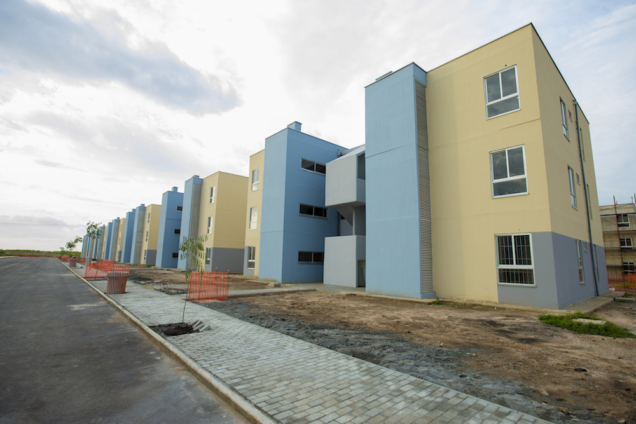Executive Director of the Ghana Real Estate Developers Association (GREDA) Samuel Amegayibor, says the rising interest rates and a lack of long-term financing opportunities for real estate developers hinder the growth of the real estate industry.
According to him, although there are some government interventions in terms of mortgages for the buyer, these initiatives on their own are insufficient to address the challenges of the industry in its entirety as the financial state of the estate developer has not as yet been factored into these measures.
Mr Amegayibor indicated that government's intervention in "diluting" the interest rates of mortgages only helps one side of the divide - the homeowner, while the developer remains without access to any long-term financing for the construction of the houses.
“..and so that intervention from the government side which has been to come to dilute the interest rate...The government gives you, any bank GHS 10 million, you are supposed to also add GHS 10 million so that the interest rate is diluted".
This intervention, he says, has enabled banks like the Republic bank to be able give something to the public for about 12 percent, instead of the usual 24 percent and beyond. It is because there is that intervention from government."
He, however, believes that these interventions by themselves are insufficient, "because as you are giving incentives in the mortgage area, there has to be something at the supply side, which is the construction finance".
"Apart from the cost of the interest rate itself, then they have a problem with non-existence of long-term financing and so within a year or two, the bank is on your neck, for you to pay back and our products are not like milk and milo which you can produce overnight it takes a long time."
He stated that as a result, "a lot of developers are struggling to get cheaper financing to build their houses", making the construction of the homes difficult and contributing to the industry’s inability to cater to the current housing demands of the country.
Considering the time taken for building projects to be completed and handed over, not having access to long-term financing with an adequate moratorium puts the estate developer under immense pressure and discourages them from engaging in more such projects in the future.
“It takes two years or four years to actually hatch a project and hand over so when you don’t have a system where you have access to long-term finance with adequate moratorium to give you, the developer some breathing space, to organize yourself, get the project through and get some breathing space to launch a finished project and start selling, and recycle the investment, then you really have a challenge.”
He called on government to address the issues faced by estate developers by creating long term loan facilities and moratoriums to ease the burden they currently face.
Latest Stories
-
Guru expresses interest in contesting SRC election at UG
4 mins -
Oil prices projected to average $84 in 2024 – World Bank
14 mins -
Meet 2 Ghanaian entrepreneurs on a mission to connect 1m African professionals to global companies by 2034
45 mins -
NCA approves Starlink’s satellite broadband application
46 mins -
Government orders FGR to revamp mining operations; assures workers of commitment to their welfare
51 mins -
Arne Slot philosophy could suit Liverpool – Van Dijk
1 hour -
EC replies Mahama: You also appointed someone who was tagged NDC
1 hour -
See colourful outdoor of Prof Naana Opoku-Agyemang as NDC’s running mate
2 hours -
Akufo-Addo commissions 15MWP Kaleo Solar Power Plant
2 hours -
GCB Bank PLC leads African financial integration, hosts ZICB delegation
2 hours -
Empowering Girls in ICT: FAWE Ghana advocates for gender equality in the Tech sector
3 hours -
Rangnick ‘contacted by Bayern Munich’ about manager job
3 hours -
Winneba Youth Choir celebrates 35th Anniversary with Aseda Concert sponsored by Fidelity Bank
3 hours -
Bonwire residents reject Agya Koo’s endorsement of Ejisu NPP MP aspirant
3 hours -
SSNIT to run out of reserves due to deficits – ILO
4 hours

